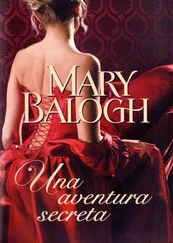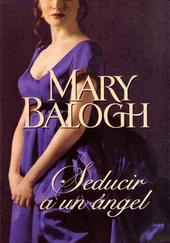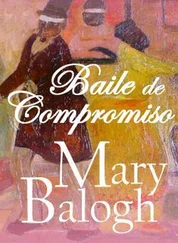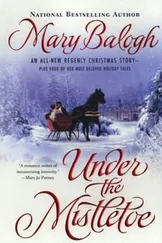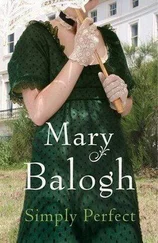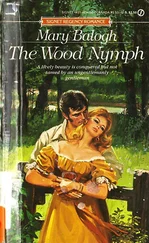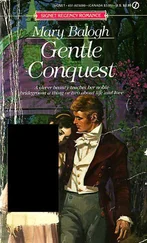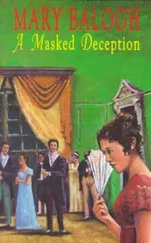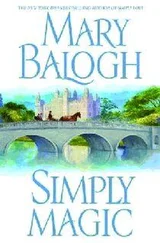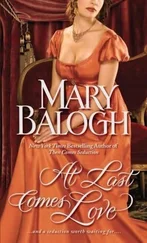Mary Balogh - Simply Unforgettable
Здесь есть возможность читать онлайн «Mary Balogh - Simply Unforgettable» весь текст электронной книги совершенно бесплатно (целиком полную версию без сокращений). В некоторых случаях можно слушать аудио, скачать через торрент в формате fb2 и присутствует краткое содержание. Жанр: Старинная литература, на английском языке. Описание произведения, (предисловие) а так же отзывы посетителей доступны на портале библиотеки ЛибКат.
- Название:Simply Unforgettable
- Автор:
- Жанр:
- Год:неизвестен
- ISBN:нет данных
- Рейтинг книги:4 / 5. Голосов: 1
-
Избранное:Добавить в избранное
- Отзывы:
-
Ваша оценка:
- 80
- 1
- 2
- 3
- 4
- 5
Simply Unforgettable: краткое содержание, описание и аннотация
Предлагаем к чтению аннотацию, описание, краткое содержание или предисловие (зависит от того, что написал сам автор книги «Simply Unforgettable»). Если вы не нашли необходимую информацию о книге — напишите в комментариях, мы постараемся отыскать её.
Simply Unforgettable — читать онлайн бесплатно полную книгу (весь текст) целиком
Ниже представлен текст книги, разбитый по страницам. Система сохранения места последней прочитанной страницы, позволяет с удобством читать онлайн бесплатно книгу «Simply Unforgettable», без необходимости каждый раз заново искать на чём Вы остановились. Поставьте закладку, и сможете в любой момент перейти на страницу, на которой закончили чтение.
Интервал:
Закладка:
“She is very lovely,” she said.
“Exceedingly,” he agreed. “But we had this conversation last evening, Frances. I would rather talk about you.”
He was babbling, he knew—making a joke of things that were not really funny at all. Truth to tell, he had no business being where he was. But he was not about to admit that.
“There is nothing to say about me,” she said. “I think you had better summon your curricle and go back to London, Lord Sinclair.”
“On the contrary,” he said, “there is a great deal to talk about. The fact that you are a Frenchwoman masquerading as an Englishwoman, for example. How is one to know that you are not a spy?”
She clucked her tongue.
“You knew that I was French,” she said. “Does it matter whether I choose to be known as Françoise Halard or Frances Allard? Somehow people expect a Frenchwoman to be flamboyant, to talk with her hands, to flutter with emotion. They expect her to be foreign . I grew up in England. I am an Englishwoman in every way that matters.”
If he had to travel very far in this carriage, he thought, his spine would surely suffer permanent damage—not to mention his hindquarters.
“I will release you from suspicion as a spy, then,” he said. “But what about the fact that you were singing at orgies before you became a teacher, Frances? You must have some interesting anecdotes to relate about that.”
Suddenly he felt grim again. And she looked tight-lipped.
“Orgies,” she said softly.
“Lady Lyle did not use that exact word,” he said. “She was speaking to Portia and so would have felt obliged to temper her language. But that is what she meant.”
She turned her head to look out the window. She was not wearing a bonnet—it was lying on the seat opposite. Her profile, he could see, looked as if it were carved out of marble. It was about that color too.
“I do not have to justify myself to you, Lord Sinclair, when you take that tone with me,” she said. “Or even when you do not, for that matter. You may get out of my aunts’ carriage and go back to town.”
He heaved an audible sigh of exasperation.
“I cannot do it, though, you see,” he told her. “I cannot simply go away, Frances. Not until our story has been ended. I remember reading a book as a boy—an ancient tome from my grandfather’s library. I became totally immersed in the story and let two perfectly decent summer days go by outdoors while I remained indoors and lapped up its contents. And then the story came to an abrupt halt—the last who-knows-how-many pages were missing. I was left feeling as if I were hanging over the edge of a cliff by my fingernails with no hope of rescue. And no one I questioned had ever read the infernal thing. When I hurled the book across the library, it sailed through a window, taking a large pane of glass with it, and I lost my allowance for at least the next six months. But I have never forgotten my wrath and frustration. They have been rekindled lately. I like stories to have neat endings.”
“We are not living within the pages of a book,” she said.
“And therefore the story can end however we wish it to end,” he said. “I no longer demand a happily-ever-after, Frances. It takes two to make a happy marriage, and so far we seem to have a total of one willing partner. But I do need to know why —why you have spurned me, why you rejected an opportunity last evening with Heath that many musicians with half your talent would kill for. Deuce take it, what happened in your past? What skeleton are you hiding in your wardrobe?”
She almost noticeably slumped into her corner.
“You are right,” she said. “You deserve an explanation. Perhaps I would have offered it in Sydney Gardens if I had realized that you were really serious in your offer and not merely acting from romantic impulse. I ought to have told you when you took me walking in Hyde Park—but I did not. I intended to write to you from Bath. But now I will have to say it in person.”
“From Bath?” he said. “Why not from London?”
“Because,” she said with a sigh, “I was afraid you would come to confront me after reading the letter. I was afraid that you would not see sense.”
She looked up at him, and he held her gaze. A smile tugged at the corners of her lips.
“Do you never see sense?” she asked him.
“There is a fine line between sense and nonsense,” he said. “I have not yet worked out exactly where you belong on the line, Frances. Tell me about the skeleton in the wardrobe.”
“Oh,” she said, “there are enough to fill a whole mansionful of wardrobes. It is not one single thing, but a whole host of things. I made a mess of my life after my father died, that is all. But I was fortunate enough to be able to break free and build a new life for myself. It is what I am going back to now. It is a life that cannot include you.”
“Because I am a viscount, I suppose,” he said irritably, “and heir to an earldom. Because I live much of my life in London and mingle with the ton .”
“Yes,” she said. “Precisely.”
“I am also Lucius Marshall,” he said, and had the satisfaction of seeing her eyes brighten with tears before she looked down at her hands.
The carriage had lumbered around a bend in the road, and the evening sunlight slanted through the window beside him to shine on her hair.
“Tell me about Lady Lyle,” he said. “You lived with her for a couple of years but almost bit my head off when I told you last evening that I had invited her to hear you sing. Then she dropped a word in Portia’s fertile ear. She could only have meant mischief.”
“She was very fond of my father,” she said. “I believe she was in love with him. Perhaps—no, probably—she was his mistress. She sponsored my come-out and was attentive to me in other ways too. When he died, she invited me to live with her and it seemed natural to me to go there. I do not believe she meant me harm. But he left enormous debts behind him, some of them to her. I was quite destitute, though I did have hopes of making an advantageous marriage.”
“To Fontbridge,” he said.
She nodded.
Fontbridge was something of a milksop, a mother’s boy. It was hard to picture Frances in love with him. But then it was notoriously difficult to understand anything she did. Besides, that had been several years ago. And Fontbridge was good-looking in the sort of way that might bring out the maternal instinct in some women.
“I was uncomfortable about being totally dependent upon Lady Lyle,” she said. “I was very grateful and very happy when she brought me to the attention of a man who was willing to sponsor and manage my singing career. And he was very complimentary and very sure that he could bring me fame and fortune. I signed a contract with him. It seemed like a dream come true. I could have my singing career, I could pay off all my father’s debts, and I could marry Charles and live happily ever after. I was a very naive girl, you must understand. I had lived a very sheltered life.”
“Who?” he asked. “Who was this sponsor?”
“George Ralston,” she said.
“Dash it all, Frances!” he exclaimed. “The man makes a career of preying upon helpless, foolish women. Did you know no better? But of course you did not. Did Lady Lyle know no better?”
“She had told me,” she said, “that singing would enable me to pay off my father’s debts to her and my own for the expenses I had incurred while living with her. I felt honor bound—though that was only later. At first I was so ecstatic just at the thought of finally singing as I had always dreamed of doing that the money and the debts were quite secondary considerations.”
Читать дальшеИнтервал:
Закладка:
Похожие книги на «Simply Unforgettable»
Представляем Вашему вниманию похожие книги на «Simply Unforgettable» списком для выбора. Мы отобрали схожую по названию и смыслу литературу в надежде предоставить читателям больше вариантов отыскать новые, интересные, ещё непрочитанные произведения.
Обсуждение, отзывы о книге «Simply Unforgettable» и просто собственные мнения читателей. Оставьте ваши комментарии, напишите, что Вы думаете о произведении, его смысле или главных героях. Укажите что конкретно понравилось, а что нет, и почему Вы так считаете.

